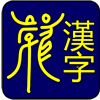I just watched a video of an interview in Irish that Benny Lewis did on Raidió na Life, the Irish language radio station in Dublin. Benny mentions that he has had a t-shirt made with “Labhair Gaeilge liom” (Speak Irish with me) on it and that people who see the shirt speak Irish to him, if they can, even in places where he didn’t expect to find Irish speakers.
What a good idea, I thought. In Ireland you can’t tell if someone speaks Irish just by looking at them, so you never know who to speak Irish to, and people don’t know if you speak Irish either. A t-shirt like Benny’s clears up both uncertainties. The same is true in Wales, Scotland and other places where minority languages are spoken – you don’t know who speaks them. Similar clothing or badges could be useful for other languages as well.
It would be interesting to wander round London, for example, wearing a t-shirt with “Labhair Gaeilge liom” and/or “Siaradwch Gymraeg â fi” (Speak Welsh with me) to say how many Irish and/or Welsh speakers you could find. Or I’m sure you’d get a lot of interest if you wore a badge saying “你可以跟我说汉语” (You can speak Chinese to me).
Have you tried this for any languages?
Could you give me translations of this phrase in various languages so I can put together a new phrases page?


